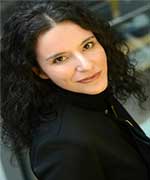
|
Claudia ALLEMANI
Dr Claudia Allemani is an Associate Professor of Cancer Epidemiology at the London School of Hygiene and Tropical Medicine. Her academic background in Italy covers the range from applied mathematics, epidemiology and medical statistics to public health and education. She is an elected Fellow of the UK Higher Education Academy and Honorary Member of the UK Faculty of Public Health. She received the Faculty’s inaugural Global Public Health Award in June 2016. Claudia’s main interests are in international comparisons of cancer survival, high-resolution studies, and avoidable premature deaths, with focus on the impact of these issues on cancer control policy. She is co-Principal Investigator of the CONCORD programme for the global surveillance of cancer survival, and Principal Investigator of an ERC Consolidator grant to carry out a world-wide study on inequalities in patterns of care and survival from cancers of the breast, cervix and ovary (VENUSCANCER). She has published over 130 peer-reviewed articles, cited over 10,000 times. She collaborates with the OECD and with several international agencies focused on cancer control, including IAEA, WHO, the US CDC and ACS, as well as ECPC. |
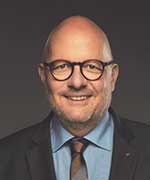
|
Marc ANGEL Born and raised in Luxembourg, Marc Angel studied at the University of Vienna, Austria, Mag.Phil Diplomübersetzer. He is a MEP since 2019, before he was Member of the Luxembourg National Parliament in 2004-2019 where he chaired the Foreign and European Affairs Committee, He is the co-founder in Luxembourg of the LGBTI NGO "Rosa Lëtzebuerg" and of the NGO "Stop Aids Now". He was UNAIDS Champion for the 90-90-90 treatment strategy, where he focused on treatment access for key and vulnerable populations.
|
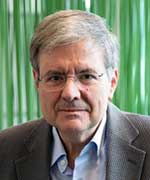
|
Manuel ARELLANO Manuel Arellano (Elda, Spain 1957) has been a Professor of Economics at CEMFI in Madrid since 1991. Prior to that, he held appointments at the University of Oxford and the London School of Economics. He is a graduate from the University of Barcelona and holds a Ph.D. from the London School of Economics. He has served as Editor of the Review of Economic Studies, Co-Editor of the Journal of Applied Econometrics, and Co-Chair of the World Congress of the Econometric Society. He is a Fellow of the Econometric Society and a Foreign Honorary Member of the American Academy of Arts and Sciences. He has been President of the Econometric Society (2014), President of the European Economic Association (2013), and President of the Spanish Economic Association (2003). He has published many research papers on topics in econometrics and labour economics, in particular on the analysis of panel data, being named a Clarivate Citation Laureate in Economics (2018). In recent work he has developed a new nonlinear econometric framework for the analysis of household income risk and consumption over the life cycle. He is the author of Panel Data Econometrics (Oxford University Press 2003). He has received the Rey Jaime I Prize in Economics (2012). He is member of the ERC Scientific Council since January 2019. |
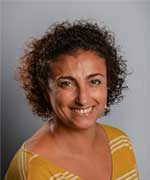
|
Nabila BOUATIA-NAJI Dr Bouatia-Naji is a geneticist and an INSERM research director at the Paris Cardiovascular research center (PARCC), Université de Paris. Her multidisciplinary team includes statistical geneticists, molecular biologists and clinicians. The team, supported by an ERC Starting Grant, aims to understand fibromuscular dysplasia and SCAD, two atypical vascular diseases with high prevalence in women, using cutting-edge use of statistical genetics and functional genomics methods. She is an active advocate for more leadership opportunities for women in health sciences, and generally in STEM.
|
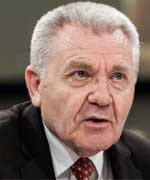
|
Jean-Pierre BOURGUIGNON Jean-Pierre Bourguignon was President of the European Research Council from January 2014 until December 2019; he currently holds the position ad interim. A mathematician by training, he spent his whole career as a fellow of the Centre National de la Recherche Scientifique from 1969 to 2013. He held a professor position at École Polytechnique from 1986 to 2012. From 1990 to 1992, he was President of the Société Mathématique de France, and President of the European Mathematical Society from 1995 to 1998. He is a former board member of the EuroScience organisation (2002-2006), and has served on EuroScience Open Forum (ESOF) committees from 2004 to 2013. Prior to his mandate as President of the European Research Council, he was the Director of the Institut des Hautes Études Scientifiques from 1994 until 2013. This international research institute located near Paris stands as the European counterpart of the Institute for Advanced Study in Princeton. Jean-Pierre Bourguignon received the Prix Paul Langevin in 1987 and the Prix du Rayonnement Français in Mathematical Sciences and Physics from the Académie des Sciences de Paris in 1997. He was elected a member of Academia Europaea in 1995 and a foreign member of the Royal Spanish Academy of Sciences in 2001. In 2005, he was elected honorary member of the London Mathematical Society. In 2008, he was made Doctor Honoris Causa of Keio University, Japan, and, in 2011, Doctor Honoris Causa of Nankai University, China. In 2017, he was elected honorary member of the German Association of Mathematicians (DMV) and foreign member of the Portuguese Academy of Sciences. In 2018 he was made Doctor Honoris Causa of the University of Edinburgh and, in 2019, honorary member of the Polish Mathematical Society. |
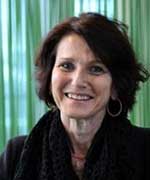
|
Paola BOVOLENTA Paola Bovolenta obtained her PhD degree at the New York University, School of Medicine, NY and worked as a postdoctoral fellow at Columbia University, Center for Neurobiology and Behaviour, NY. She then moved to the Instituto Cajal, CSIC, Madrid, and then to the Center for Molecular Biology Severo Ochoa, where she is currently working. She has been Visiting Scholar at the Biotecnology Department (DIBIT) of the Fondazione San Raffaele in Milan and in the École normale supérieure in Paris. She served as Head and Deputy Head of the Biology and Biomedicine Area of the Spanish Research Council (CSIC), Adjoined Manager for Molecular Biology at the National Evaluation Agency (ANEP). She was member the Communication/Publication Committee of FENS, of the International Affairs Committee of the Society for Neuroscience and of the Telethon Scientific Board. She currently serves in the Scientific Advisory Board of the ERA-NET NEURON Program and is a member of the SAB of Institut de la Vision in Paris and of the IDBM in Marseille. She is European Editor of the journal Developmental Neurobiology and member of the editorial board of different journals. She is member of EMBO. Her research interests focus on understanding the molecular mechanisms underlying early development of the nervous system with particular emphasis on those processes that may lead to congenital defects and neurodegenerative diseases. She is member of the ERC Scientific Council since January 2017. |
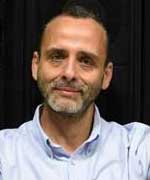
|
Nello CRISTIANINI Nello Cristianini is Professor of Artificial Intelligence at the University of Bristol. His research covers machine learning methods and applications of AI to the analysis of media content, as well as the social and ethical implications of AI. Cristianini is the co-author of two widely known books on machine learning, as well as a book on bioinformatics. He is a past recipient of the Royal Society Wolfson Research Merit Award, and of an ERC Advanced Grant. Before joining the University of Bristol, he has been a Professor of statistics at the University of California, Davis. Currently he is working on the social and ethical implications of AI. His animated videos dealing with the social aspects of AI can be found here. |
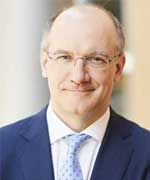
|
Philippe CUPERS Philippe Cupers is, since the 1st of May 2019, the Head of the Life Sciences Unit at the European Research Council Executive Agency. His responsibilities focus on the coordination of the scientific evaluation of proposals and of the monitoring and follow-up of funded ERC projects in the domain of Life Sciences. Philippe Cupers joined the Directorate-General for Research and Innovation of the European Commission in 2001, where he worked as scientific officer and then Head of Sector for brain research. He worked also as a scientific officer for setting up the Innovative Medicines Initiative (IMI), Deputy Head of Unit for 'Health Strategy' focusing on the development, promotion and monitoring of European health research and innovation strategy and policies (e.g. personalised medicine), as well as Deputy Head of Unit for 'Innovative tools, technologies and concepts in health research'. Philippe Cupers has a PhD in cell biology and biochemistry from the University of Louvain (de Duve Institute). Before joining the Commission, he worked at the Harvard University Medical School, at the Flemish Institute for Biotechnology (University of Leuven) and at GlaxoSmithKline Biologicals. |

|
Helena DALLI
Helena Dalli is the first EU Commissioner for Equality since December 2019. Her role is to deliver on the Union of Equality chapter within the Political Guidelines of President von der Leyen, by strengthening Europe’s commitment to equality and inclusion in all of its senses. Prior to taking her role as Commissioner, Dalli held various political roles in Malta including Member of Parliament (1996 to 2019), Minister for European Affairs and Equality (2017 to 2019), and Minister for Social Dialogue, Consumer Affairs and Civil Liberties (2013-2017). She was also opposition Shadow Minister for public administration, equality, public broadcasting and national investments (1998-2013) and Junior Minister for Women's Rights in the Office of Prime Minister (1996-1998). Dalli holds a PhD in Political Sociology from the University of Nottingham, and lectured in Economic and Political Sociology, Public Policy, and Sociology of Law at the University of Malta. |

|
Athene DONALD Athene Donald completed her first and second degrees in Physics at the University of Cambridge. After four years of postdoctoral research at Cornell University in the USA, she returned to Cambridge where she has been ever since, becoming a Professor in 1998. Her field of research is soft matter and biological physics, inherently interdisciplinary work, which means that she maintains close links with disciplines beyond physics. She was elected a Fellow of the Royal Society (FRS) in 1999 and currently serves on their Council and is Chair of their Education Committee. She has worked with and served on a number of committees of two of the UK’s Research Councils (BBSRC and EPSRC) and is currently a Trustee of the Science Museum in London. She was elected to Academia Europaea in 2009. She has won numerous prizes during her career, including the 2009 L’Oreal/UNESCO For Women in Science Laureate for Europe, and was made a Dame Commander of the British Empire in 2010. She was member of the ERC Scientific Council from 2013 to 2018. |
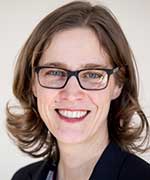
|
Nicola FUCHS-SCHÜNDELN Nicola Fuchs-Schündeln is Professor of Macroeconomics and Development at Goethe University Frankfurt. Prior to joining Goethe University in 2009, she was an assistant professor at Harvard University. She received her PhD in economics from Yale University in 2004. Her research focuses on the analysis of household saving and labor supply behavior, and the endogeneity of preferences. Nicola Fuchs-Schündeln is chairwoman of the Review of Economic Studies and of the German Economic Association. She received the 2018 Gottfried Wilhelm Leibniz Prize of the German Science Foundation, the highest scientific award in Germany, and the 2016 Gossen Prize of the German Economic Association. In 2018, she was also awarded an ERC Consolidator Grant, after an ERC Starting Grant in 2010. Her ERC Consolidator Grant analyzes heterogeneous labor market behavior and outcomes for men and women. Nicola Fuchs-Schündeln is a member of the Scientific Advisory Board of the German Federal Ministry of Finance and of the Franco-German Council of Economic Experts. She holds many affiliations in international research networks. |
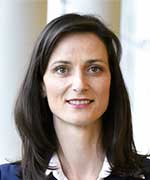
|
Mariya GABRIEL
Bulgarian-born Mariya Gabriel is the current European Commissioner for Innovation, Research, Culture, Education and Youth and First Vice-President of the European People’s Party (EPP). She was Commissioner for Digital Economy and Society from 2017 to 2019. She was the Vice-President of the EPP Group in the European Parliament in 2014-2017. Mariya Gabriel was a Member of the European Parliament, EPP/GERB (Citizens for European Development of Bulgaria) in 2009-2017. Since 2012, Mariya Gabriel has served as Vice-President of EPP Women. Prior to this she was Parliamentary Secretary to MEPs from the GERB political party within the EPP Group in 2008-2009. |
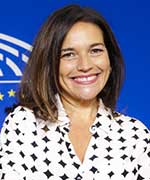
|
Lina GÁLVEZ MUÑOZ |
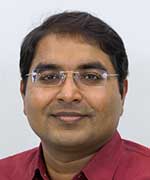
|
Krishna GUMMADI Krishna Gummadi is a scientific director at the Max Planck Institute for Software Systems (MPI-SWS), and a Professor at the University of Saarland, Germany. He received his Ph.D and B.Tech. degrees in Computer Science and Engineering from the University of Washington and the Indian Institute of Technology, Madras, respectively. Krishna received an ERC Advanced Grant in 2017 to investigate "Foundations for Fair Social Computing". His ERC funded research focusses on enhancing fairness and transparency of machine (data-driven) decision making in social computing systems. Krishna's work on fair machine learning, online social networks and media, Internet access networks, and peer-to-peer systems has been widely cited and his papers have received numerous awards, including Test of Time Awards at ACM SIGCOMM and AAAI ICWSM, Casper Bowden Privacy Enhancing Technologies (PET) and CNIL-INRIA Privacy Runners-Up Awards. |
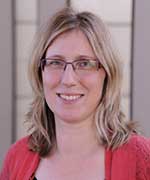
|
Natasha KARP Natasha is a Principal Biostatistician and UK Team Leader within AstraZeneca providing statistical support for preclinical research. Natasha has sixteen years’ experience spanning biosensors, proteomics, drug-discovery and genotype-phenotype mapping and has worked in both commercial and academia settings. Natasha is driven to finding practical solutions to the challenges of modern biology acting as a bridge between theoretical statistics and biologists. In recent years, Natasha has focused on the challenges of preclinical research with a particular interest in improving replicability, reproducibility and generalisability of the studies. Her research has focused on three angles: firstly, to optimise the data analysis applied, then how to best design experiments and finally improving the reporting of the experiments conducted. |
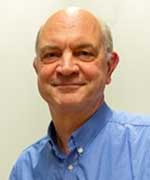
|
Waldemar KÜTT Waldemar Kütt is the director of the European Research Council Executive Agency since May 2020. He previously headed the unit on "Bioeconomy and Food Systems” in Directorate C “Healthy Planet” of DG Research and Innovation in the European Commission, and the units on "Bio-based Products and Processing" and “Bioeconomy Strategy” in the “Bioeconomy Directorate” of the same DG from 2014-2019. During the latter, he was in charge of the 2018 Commission Communication updating the 2012 Bioeconomy Strategy and Action Plan. From 2008 to 2014 he held various positions as senior expert, Deputy and Head of Cabinet in the Cabinet of Research Commissioners Potočnik and Geoghegan-Quinn. His main responsibilities included the €80 billion new Framework Programme for Research and Innovation, Horizon 2020. He joined the Research Directorate General of the European Commission in 1997 and has since coordinated activities and policies related to innovation, SME, IPR, finance, technology transfer and bioregions. He holds a doctor's degree summa cum laude in Physics from the Technical University Aachen, Germany, and has worked several years as postdoc on ultrafast carrier transport and coherent phonons in semiconductors and published several papers in the field. |
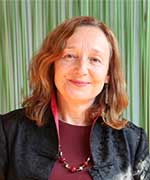
|
Angela LIBERATORE Angela Liberatore is the Head of Unit on Social Sciences and Humanities at the European Research Council Executive Agency. Prior to this, she worked in DG RTD of the European Commission in the international cooperation programme with focus on the European Neighbourhood –including the Middle East, and, earlier on, in the Social Sciences and Humanities programme on citizenship, governance, conflict resolution, and in the Environment programme with focus on climate change. She participated in the negotiation of the Kyoto Protocol and contributed to the preparation of the European Commission’s White Paper on European Governance. Publications include ‘Climate Change, Security and Peace: The Role of the EU’; ‘Balancing security and democracy. Biometric politics in the European Union’; ‘Democratising Expertise, Expertising Democracy’; ‘The Management of Uncertainty: Learning from Chernobyl’. Angela holds a PhD in Political and Social Sciences (European University Institute) and a degree in Philosophy (Bologna University). |
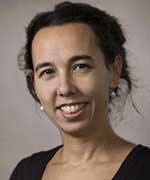
|
Judi MESMAN Judi Mesman is professor at Leiden University (the Netherlands) in the field of societal challenges with a focus on issues of diversity and youth. In her research she studies socialization effects on children’s gender stereotypes, interethnic prejudice, attitudes about societal roles and engagement, and issues of intersectionality. Zooming in on her work on the topic of gender, the first main strand of work studies parental implicit and explicit messages regarding gender roles, using several innovative video observation tasks to elicit family discussions about gender, and parental statements reflecting gender attitudes. Another strand of work looks at gender (and ethnic) representation and stereotyping in children’s books and school textbooks. The results of this study have been shared with the educational publishers who have committed to less biased future editions, and the research team is currently developing a self-assessment tool for uncovering bias in textbooks. Finally, Mesman’s team studies gendered aspects of school assessments and their potential impact on educational pathways, such as achievement and subject selection. Mesman also invests in societal and outreach activities, for example as a founding member of Athena’s Angels, and member of the newly established national advisory council for diversity and inclusion in higher education and research. |
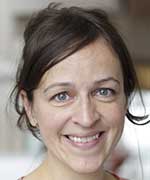
|
Irene MIGUEL-ALIAGA Irene Miguel-Aliaga is Professor of Genetics and Physiology at Imperial College London and Chair of the Genes & Metabolism Section at the MRC LMS, London (UK). She received her PhD in Genetics from the University of Oxford (UK) and explored how neurons develop during postdoctoral work at Harvard (USA), Linköping University (Sweden) and NIMR (now Crick Institute, UK). First at Cambridge and now in London, her research group is investigating how and why the gastrointestinal tract communicates with other organs such as the brain. She was the recipient of an ERC Starting Grant and currently holds an ERC Advanced Grant. Her ERC-funded work in flies (and, more recently, mice) has revealed that the gastrointestinal tract of males and females is very different, and is currently exploring the nature and significance of these sex differences. This work is revealing that the sex of the intestine impacts its tumour susceptibility and, perhaps more unexpectedly, food intake and fertility. Irene was elected to the EMBO YIP programme in 2012, to EMBO in 2017 and to the Academy of Medical Sciences in 2019. She also received a Suffrage Science Women in Science Award in 2018. |
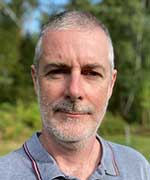
|
Edward Hugh MORROW He is an evolutionary biologist with a particular focus on sexual conflict and sexually antagonistic selection. He obtained his PhD from the University of Liverpool (UK) in 2001 and had two postdoctoral positions at Uppsala University (Sweden) and University of California Santa Barbara (USA). He started his own research group in 2005 at Uppsala University before moving to the University of Sussex (UK) on a Royal Society University Research Fellowship in 2012. Between 2012 and 2016, he was the recipient of an ERC Starting Grant with the acronym 2Sexes_1Genome, where they identified hundreds of candidate genes that had sexually antagonistic effects on reproductive fitness in the fruit fly Drosophila melanogaster. He recently returned to Sweden with a Swedish Research Council grant hosted by Karlstad University to investigate these in more detail. In the past, he has worked with a diverse range of insect species in laboratory and sometimes field environments, and complemented experimental work with some modelling of evolutionary processes in collaboration with researchers from Europe and Australia. Most recently, he has also been investigating sexually antagonistic genes in humans and their potential role in explaining sex differences in disease. |
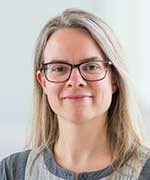
|
Sabine OERTELT-PRIGIONE
Sabine Oertelt-Prigione MD, PhD, MScPH has been working in the field of sex and gender-sensitive research for the last 15 years. After her medical studies, she investigated the biological basis of sex differences in autoimmunity. She then focused on the role of sex and gender in cardiovascular diseases. Realizing that the implementation of sex and gender-sensitive medicine is a process that affects organizations as much as researchers, she obtained training as an organizational consultant. |
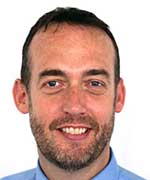
|
Martin PENNY
Martin Penny is the Head of Unit for Physical Sciences and Engineering in the European Research Council Executive Agency, having joined the Agency in July 2014 from DG Research and Innovation, in the European Commission, where he worked as the political assistant to the Director-General, Robert-Jan Smits. He was previously a policy officer in the international cooperation Directorate in DG RTD, and, also worked on the development of the specific programmes for FP7 and on the policy and technical aspects of the annual work programmes. |
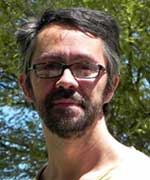
|
Iñaki PERMANYER Iñaki Permanyer is a Ramón y Cajal research fellow working in the Center for Demographic Studies (CED) since 2010. With a degree in Mathematics, he holds a PhD in Demography from the Autonomous University of Barcelona (UAB). Before coming to the CED, he has worked in the UAB Economics Department (2000-2008), in the Institute for Economic Analysis (IAE-CSIC, 2007-2008) and in the Department of City and Regional Planning in Cornell University (2008-2010). He has received several research grants, including the Fulbright Fellowship, the Juan de la Cierva and the Ramón y Cajal fellowships. In 2014 and 2019, he received a Starting Grant and a Consolidator Grant from the European Research Council, and in 2020, he received the prestigious European Demographer Award. He has more than thirty publications in top field journals like PNAS, Scientific Data, Population and Development Review, Demography, Feminist Economics, Journal of Development Economics, World Development, or Demographic Research. In his ERC Starting Grant project, he investigated some of the implications that demographic dynamics (e.g. family formation and household structure patterns) can have on socio-economic inequality. |
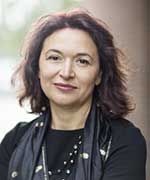
|
Sandra PONZANESI
Sandra Ponzanesi is Chair and Professor of Media, Gender and Postcolonial Studies, at the Department of Media and Culture Studies, Utrecht University, NL. She is PI of the ERC project “Digital Crossings in Europe: Gender, Diaspora and Belonging” CONNECTINGEUROPE. The project investigates the relation between migration and digital technologies, focusing on how digital diasporas are created and performed in relation to issues of gender, ethnicity and affective belonging. It explores the way in which the ‘connected migrant’ contributes to new forms of European integration and cosmopolitan citizenship. |
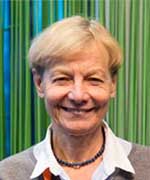
|
Barbara ROMANOVICZ Barbara Romanowicz was born and educated in France, where she studied mathematics at the Ecole Normale Supérieure and holds a PhD degree in Geophysics from the University of Paris 7. Between 1982 and 1990, as a researcher at the CNRS, she developed GEOSCOPE, a then state-of-the-art global network of digital seismic stations for the study of earthquakes and the structure of the earth's interior. In 1991, she was appointed Director of the Berkeley Seismological Laboratory and professor in the Department of Earth and Planetary Science at UC Berkeley. During her directorship (until 2011), she helped establish a joint real time earthquake notification system for northern California between the BSL and the US Geological Survey. Her research interests include the study of deep earth structure and dynamics using seismological tools, and recently, implementing numerical seismic wavefield computations in seismic tomography. She also has an interest in earthquake processes and scaling laws, the development of modern broadband seismic and geophysical observatories on land and in the oceans. Among honors received, she was elected to the US National Academy of Sciences in 2005 and has recently been appointed to the chair of Physics of the Earth Interior at Collège de France in Paris. She is member of the ERC Scientific Council since January 2016. |
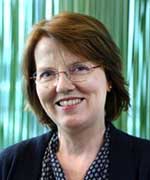 |
Isabelle VERNOS Isabelle Vernos is a research professor at ICREA (Institució Catalana de Recerca i Estudis Avançats), Centre de Regulació Genòmica, Barcelona, Spain and an EMBO member since 2005. In the past, she worked at the Welcome CRC Institute, Cambridge, UK. She then worked as a staff scientist in the Cell Biology and Biophysics Program at the European Molecular Biology Laboratory (EMBL) in Heidelberg, Germany, becoming a team leader in 2001. Research in her lab is directed at understanding the role of the microtubule network in cell organization and function. To address this question her group study various microtubule-associated proteins (molecular motors and MAPs) and their regulators (kinases, phosphatases and the small GTPase Ran during M-phase). One major goal is to unravel how the self-organization of cellular components results in the morphogenesis of dynamic molecular machines. She was member of the ERC Scientific Council from 2011 to 2019. |

